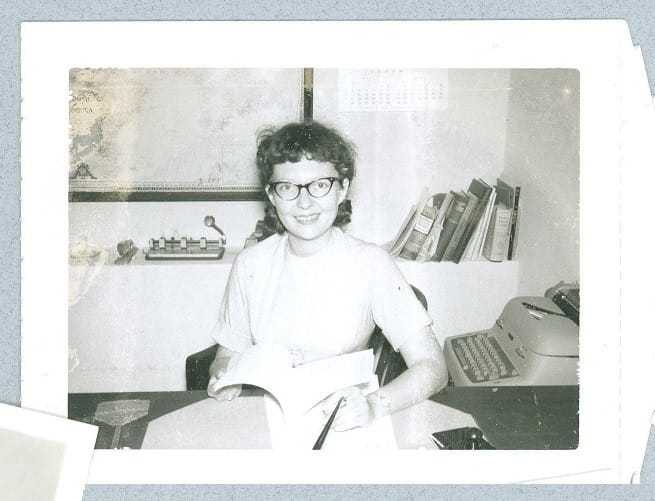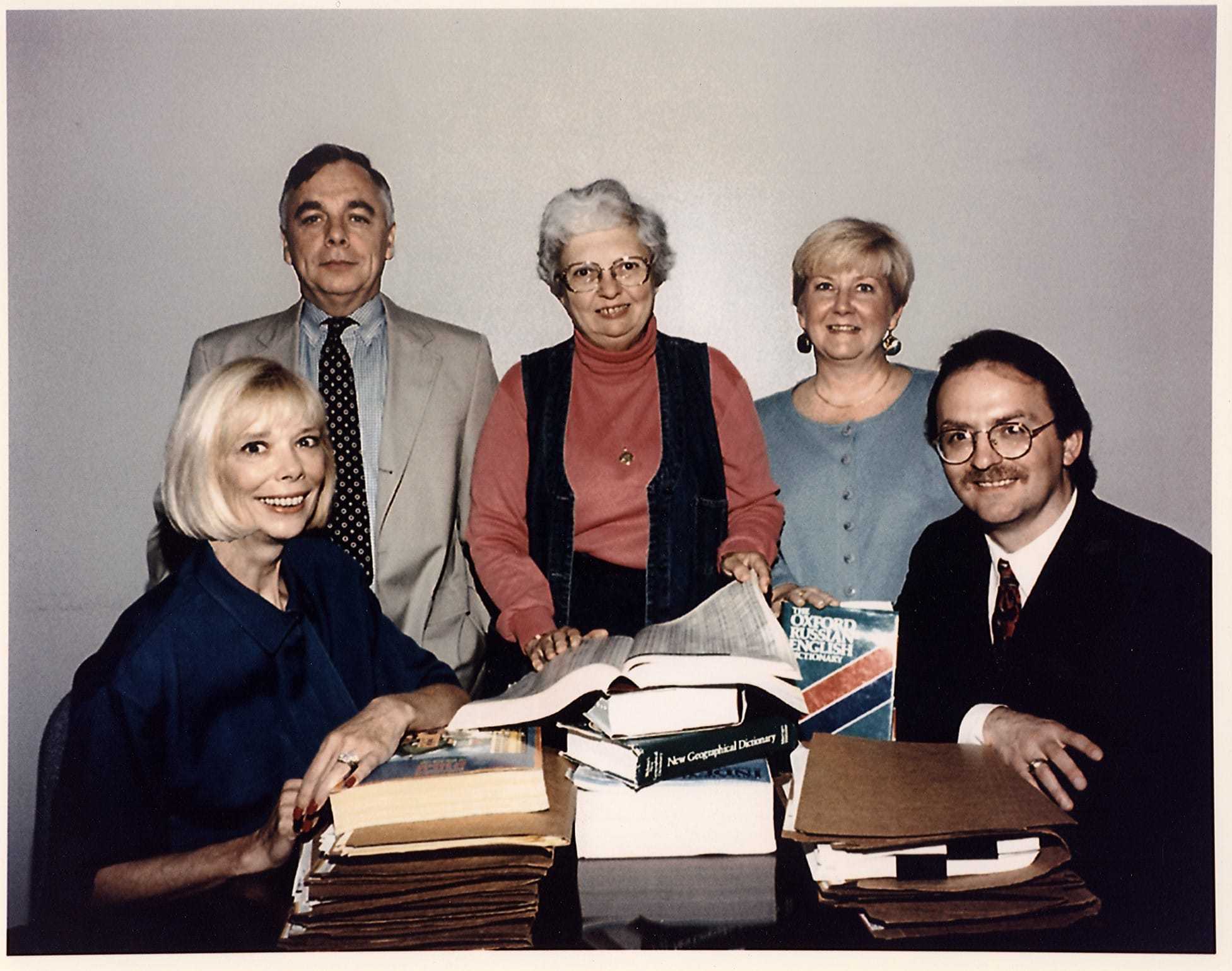“At first, I wanted to jump across the table and strangle him. But then I started laughing. It was really funny, because he was the one in shackles, not me.”
This was the reaction of CIA officer Jeanne Vertefeuille upon learning that Aldrich Ames, the most damaging mole in CIA history, had once given his Soviet handlers her name when they asked what other CIA official could be framed for Ames’s own treachery.
Fortunately that strategy did not pan out, and instead Jeanne led the internal task force that ultimately brought Ames to justice. It was the pinnacle of a long and memorable career in CIA.

From Typist to Spy Catcher
Jeanne joined the CIA as a typist in 1954, and as professional opportunities for female officers slowly began to grow, she got assignments at various posts overseas. She also learned Russian and found her niche in counterintelligence.
In the spring of 1985, after an alarming number of Agency assets run against the Soviet Union disappeared in rapid succession, Jeanne received a cable from the Soviet/East European Division Chief. As she later recalled, “He said, ‘I want you to come…when you come back, I want you to work for me, and I have a Soviet problem….I want you to work on it.”
She returned to lead a five-person investigative team searching for answers as to how this troubling loss of assets happened.
The task was a long and exhaustive one, complicated by the fact that many did not believe the cause was a traitor. Among the other explanations floated was the idea that outsiders were intercepting CIA communications.
Finding Ames
An extensive review of records ultimately yielded the answer: Ames, who was initially working in the Soviet Division counterintelligence, began spying for the USSR in 1985.
He compromised numerous Soviet assets, some of whom were executed. In exchange he received sums of money so great that, of known foreign penetrations of the US Government, he was the highest paid.
His position gave him the perfect cover, as he was authorized to meet with Soviet officers for official purposes. Yet, his extravagant lifestyle came under the task force’s suspicion in November 1989.

Catching a Spy
The breakthrough came in August 1992 when Jeanne’s colleague, Sandy Grimes, discovered Ames made large bank-account deposits after every meeting with a particular Soviet official.
The FBI took over the investigation and used surveillance to build the case against Ames.
He was arrested on February 21, 1994, with further incriminating evidence discovered in his house and on his home computer.
Ames plead guilty and is serving a life sentence in federal prison.
Jeanne’s Legacy
Jeanne had reached the mandatory retirement age in 1992 but immediately returned as a contractor to see the investigation through to its completion.
After it was all over, Time Magazine asked Jeanne for permission to do a photo shoot. Jeanne protested that there were still members of her family who didn’t know where she worked. Nevertheless, she finally agreed.
As a former CIA Executive Director tells it: “You may have seen Jeanne staring out from a full glossy page of Time, billed as ‘the little gray-haired lady who just wouldn’t quit.’ She was holding a spy glass reflecting the image of Aldrich Ames. I can imagine some relative sitting down at the breakfast table, opening Time Magazine, and exclaiming, ‘My word, that’s Aunt Jeanne. I thought she was a file clerk or something.’
Jeanne was a true CIA icon and legend. Serving our Agency for 58 years, working until just prior to her death in 2012, she blazed a trail for women in the Directorate of Operations, beginning at a time when it was an overwhelmingly male enterprise.
Remembered as a driven, focused officer who demanded excellence and was always devoted to the mission, Jeanne’s life and the legacy she entrusted to us have forever impacted the Agency.

